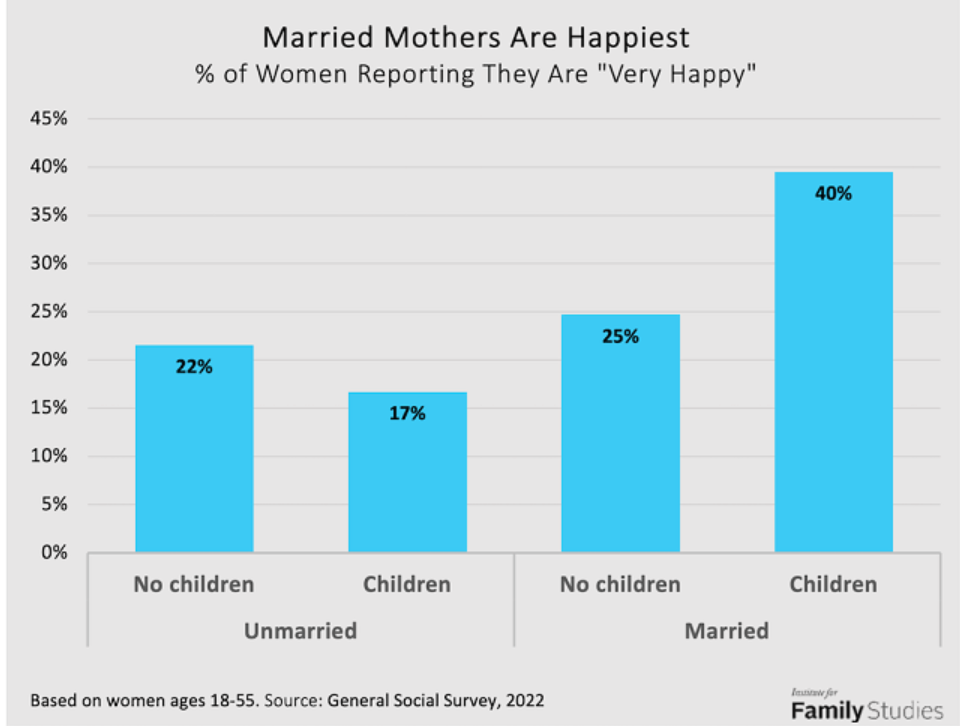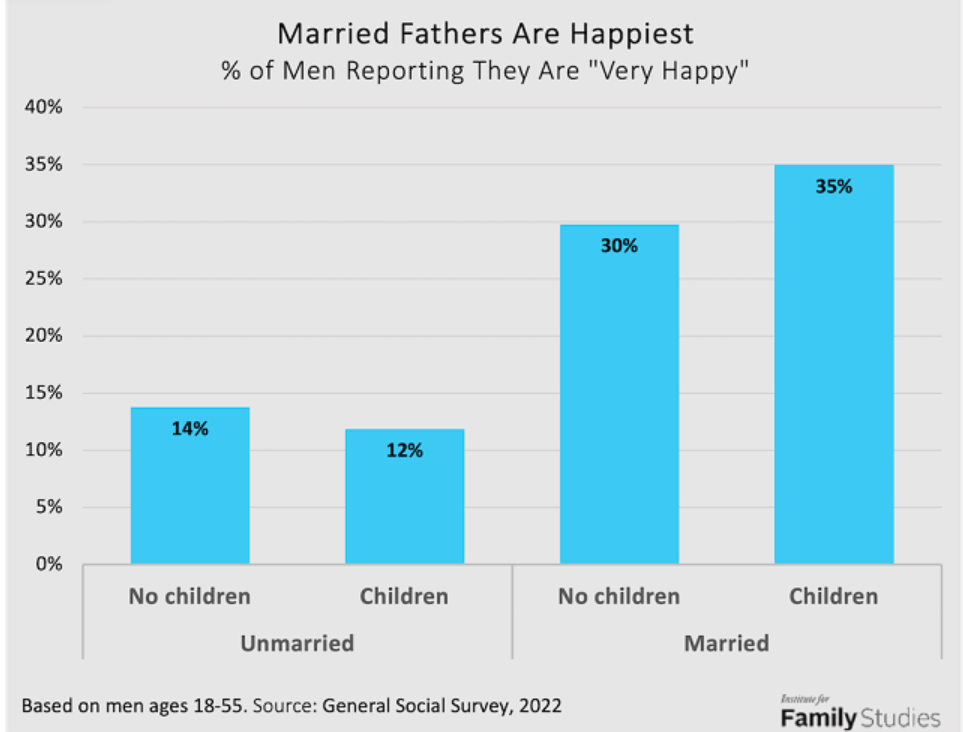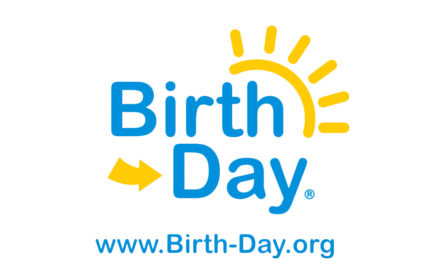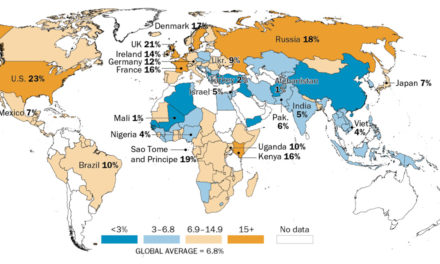Who are the happiest people we meet as we go about our daily lives at work, school and in the larger community? Many people assume its most likely those who are pursuing their dreams of career, higher education, founding exciting new businesses, and traveling the world – those not “tied down” by family.
They would be wrong.
The gold-standard in social science research, the 50-plus-year-old General Social Survey (GSS), tells us that it’s married women and men who are mothers and fathers who report the highest levels of being “very happy.”
Our friends at the Institute for Family Studies have just released an important new research brief explaining, “The GSS shows that a combination of marriage and parenthood is linked to the biggest happiness dividends for women.”
They add, “Among married women with children between the ages of 18 and 55, 40% reported they are ‘very happy,’ compared to 25% of married childless women, and just 22% of unmarried childless women.”
It is unmarried mothers who report being least likely to be “very happy” with only 17% of them reporting this. The IFS scholars explain this finding has been demonstrated in earlier research, “In earlier surveys, we found that women who were married with children were generally the happiest and the least lonely.”
The numbers for women are reflected in this chart, and they reveal just how powerful the happiness dividend for married mothers is. Married mothers have no close second-place competitor.

What does the research data look like for men?
It reveals married fathers, with all other life-factors being equal, are more than twice as likely to report being “very happy” compared to their childless and unmarried peers. The IFS researchers explain, “By contrast unmarried childless men, and especially unmarried fathers are the least happy—with less than 15% of these men saying they are “very happy.’”
The numbers of men who report being “very happy” across marital status and fatherhood look like this.

The comparisons for men and women who are actively raising a marriage-based family, compared to their non-marriage and parenting-based peers are not even really close. Marriage and parenthood do bring marked levels of greater happiness to both men and women’s lives, even when it means they have less time, energy and financial resources to spend on themselves.
And maybe one of the reasons is found precisely in this fact, that our own happiness is elevated when we have others around us in marital and parental relationships that desire and benefit from our love.
Daily Citizen reported last month on emerging research from a leading University of Chicago economist who demonstrated that marriage was the life choice that brought the highest levels of personal happiness. And does so by notable margins. The research found a stunning 30-percentage-point elevation in happiness between the married and unmarried. This University of Chicago researcher also found the connection between marriage and happiness is so strong that the “recent decline in the married share of adults can explain (statistically) most of the recent decline in overall happiness” in the general population.
IFS notes that celebrated social psychologist Jean Twenge also attributes the expanding divide in happiness among Americans to a faster decline in marriage among those with less education and income. Professor Twenge explains,
The growing class divide in happiness clearly has many causes, including income inequality. Still, relationships are also crucial for happiness, and for many people, marriage is their primary and most stable relationship.
The IFS scholars conclude this GSS data “provides further evidence that happiness is linked to American family life” adding that “these two traditional markers [marriage and parenthood] of adulthood are associated with a happier life.” This is because, “As difficult as marriage and parenthood can be, in general, men and women who have the benefit of a spouse and children are the most likely to report that they are ‘very happy’ with their lives, according to the most recent round of the General Social Survey.”
This academic data, once again, supports God’s foundational wisdom when He stated at creation “It is not good for the man to be alone” and He called man and woman, before anything else, to found a family as the answer to this original problem.
This new GSS data tells us God’s wise advice is so much more than a quaint Sunday School Bible story. It is divine wisdom that leads to very high levels of human happiness.
Image from Shutterstock.






